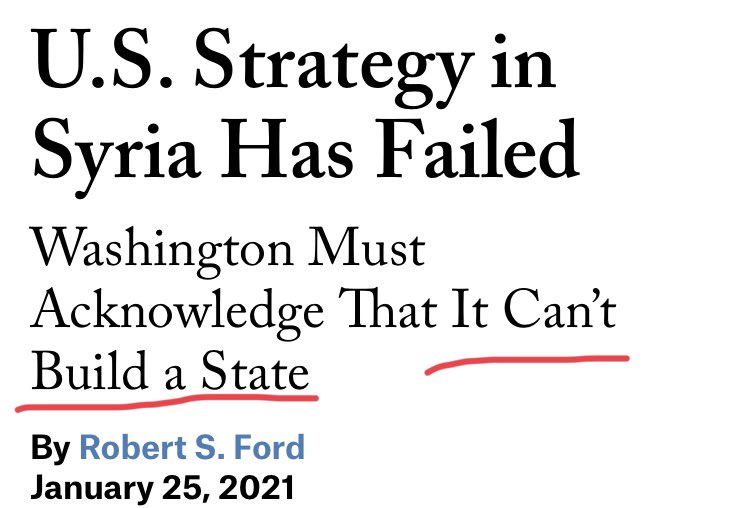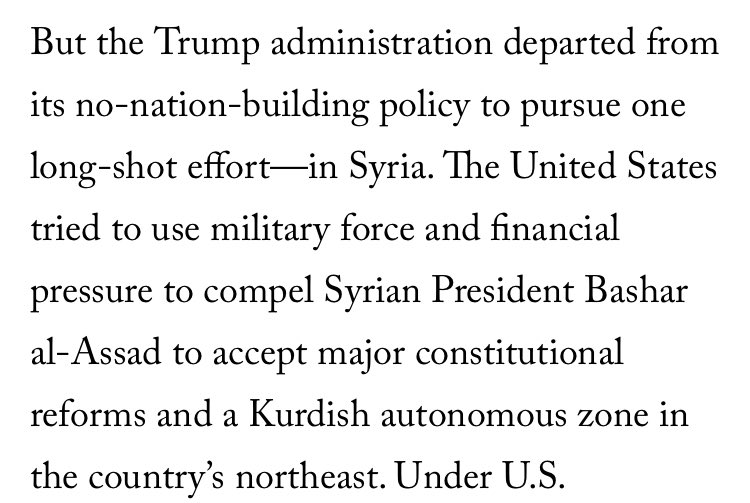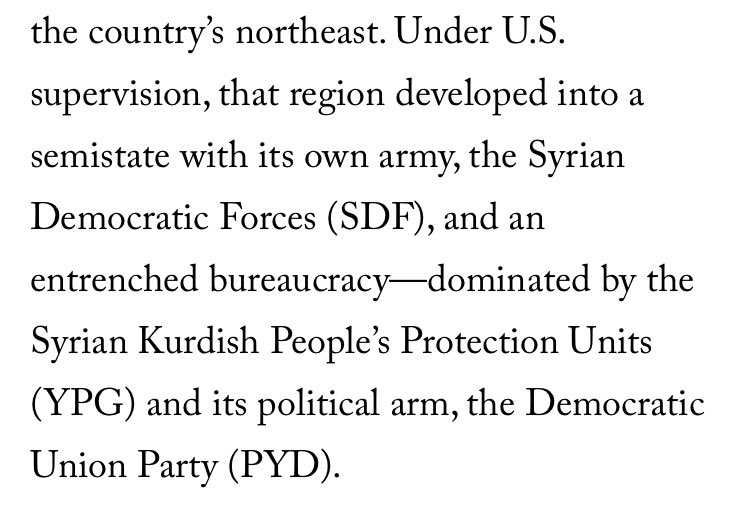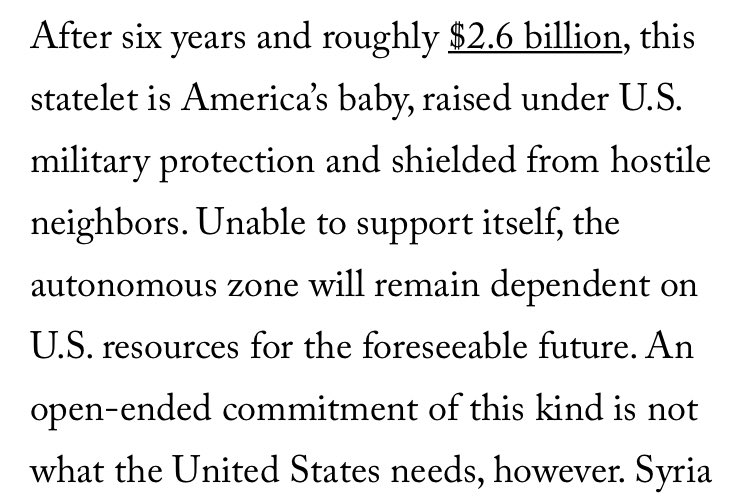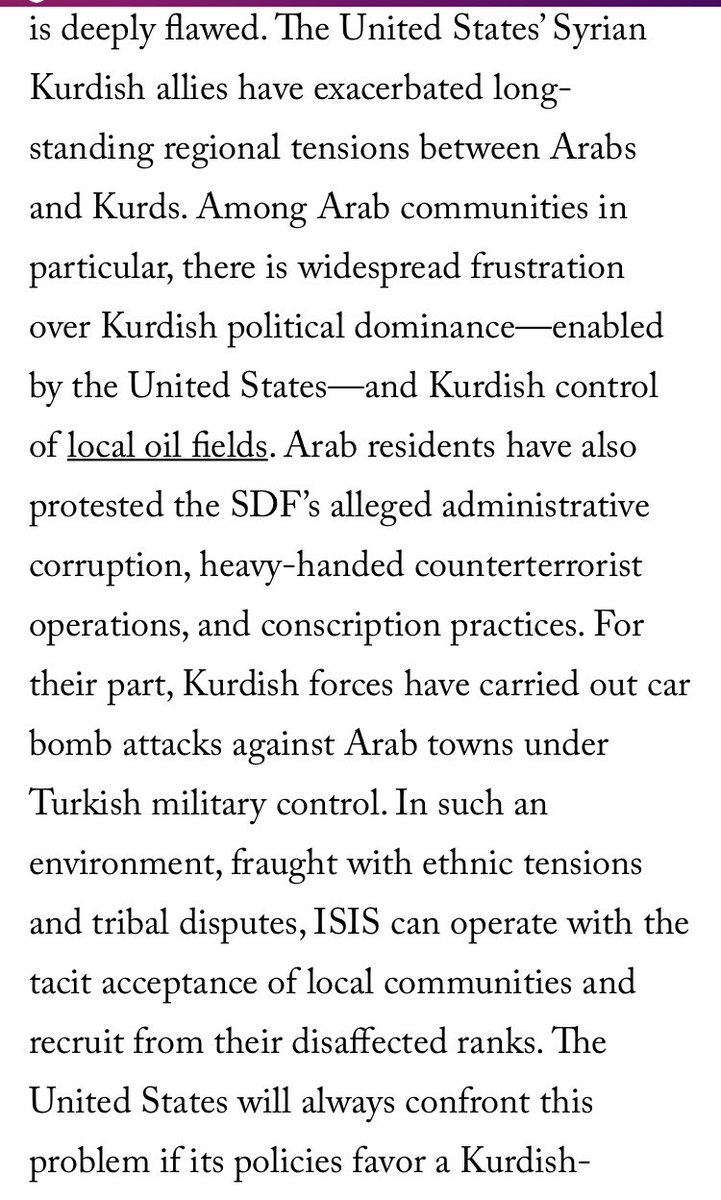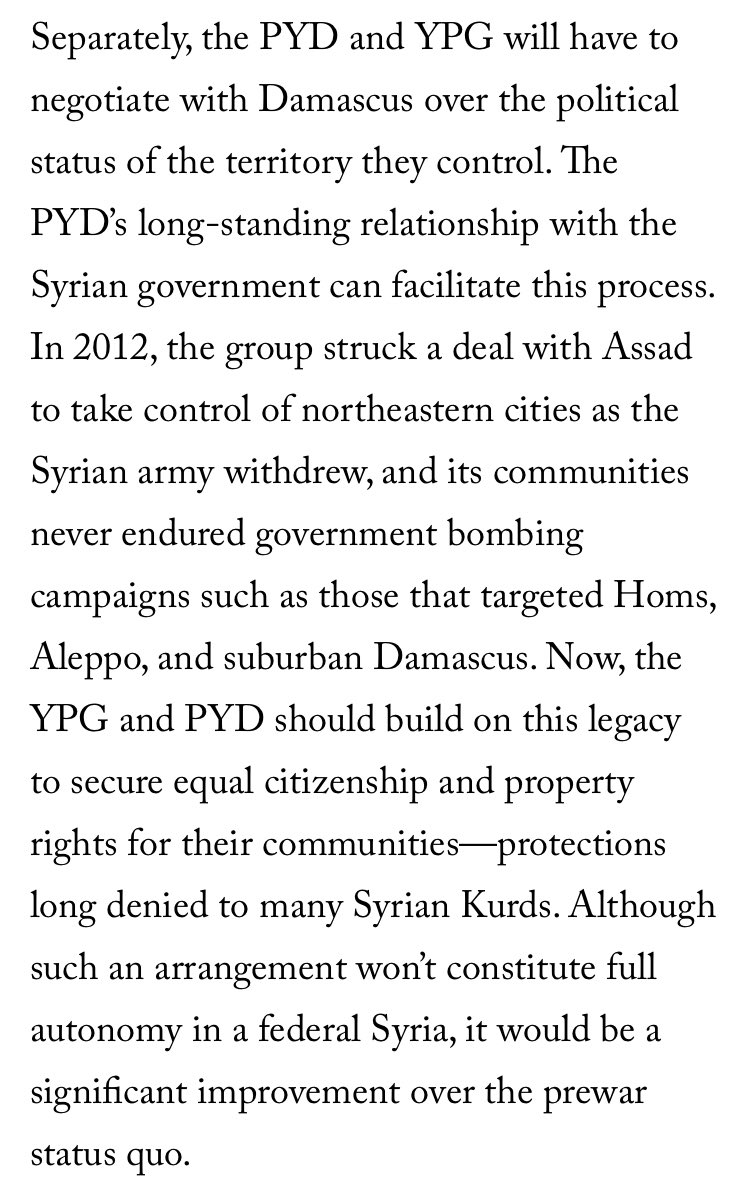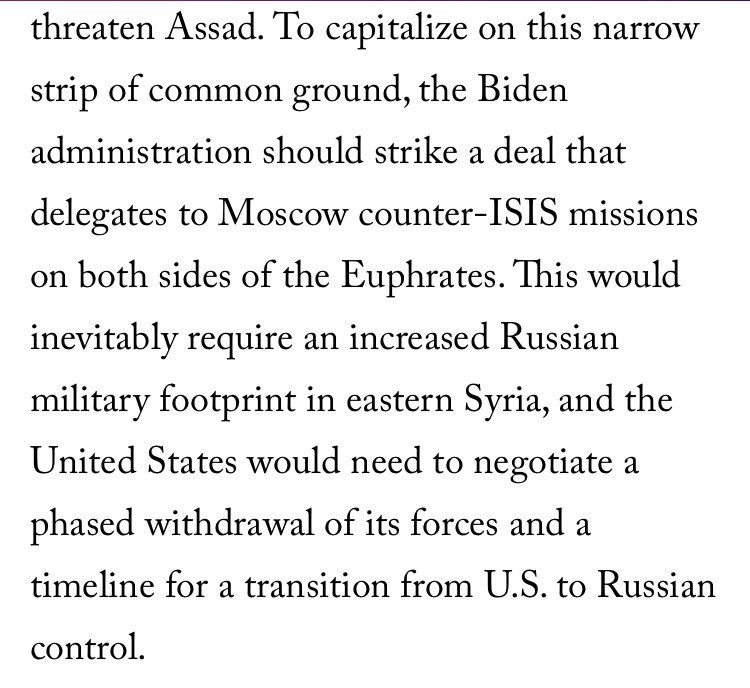[Thread] I have a great deal of respect for Amb. @fordrs58. And so I’m surprised by this article, with which I have profound disagreements. https://www.foreignaffairs.com/articles/turkey/2021-01-25/us-strategy-syria-has-failed
I don’t question the main assertion : Obviously US approach to Syria has been far from successful for the past ten years. But I disagree on the article’s diagnosis of this failure. It’s not that the US had a wrong strategy, rather that it didn’t have one with the right scope:
1/ Questionable subtitle: the US state-building ambition never extended to SYR. As Ford himself points out, SYR has never been a US priority & there was no grand plans like in Afgha or Iraq. The Iraqi state-building failure actually refrained the US from engaging in it in SYR.
2/ I’d challenge the description of the Trump policy : Trump never had a joint policy for c/ISIS & pressure on Assad. These were separated. And direct military force wasn’t used against Assad (except defensively in Feb. 2018 when militias crossed the Euphrates & when he used CW)
3/ Jim Jeffrey did his best to increase coherence and connect the different parts of the Syria file but this proved particularly difficult with the Trump-Erdogan connection or when Pompeo would show limited interest for Syria.
4/ i also disagree with the description of US policy in NE Syria: there was no proactive process to build a ‘statelet’, or to force Assad to accept NE autonomy. There was just a very simple military goal: defeat ISIS. Any other consideration was postponed for later.
5/ In that sense, the assessment in Ford’s article ignores that beyond CT & humanitarian assistance, US support to NE Syria has been limited. Stabilisation funds were frozen by the Trump admin. And Trump let Turkey curtail PYD controlled territory.
6/ Short of a comprehensive strategy on Syria, US officials basically told the PYD «we won’t oppose a PYD/Regime deal», which is neither exactly a «regime change» attitude nor a proactive policy. Rather the acknowledgment of US inability to give polit guarantees to the Kurds.
7/ PYD governance has well documented flaws. But describing them without mentioning neither the regime alternative (Arabs still prefer PYD areas to regime areas) nor to what the PYD think they have to fight against (pro-TUR islamist groups) isn’t giving a full picture.
8/ The article also misses a key point: it doesn’t explain why no deal could be reached so far between the PYD & the Assad regime despite numerous attempts: because the PYD refuses the return of the regime’s security services, because they know what practices come with them.
9/ On the solution Ford proposes, « relying on TUR & RUS », there are already so many examples of why this is no real solution. It’s not even a moral issue, it’s just that both RUS & TUR have shown what this means:
i/ the October 2019 crisis: TUR&RUS teamed up, both army entered NE Syria, leading to 200k displaced, infighting, closure of the Yaroubieh humanitarian crossing...
ii/ the article also largely ignores the main crisis ahead: Idlib. « Relying on RUS » ultimately means giving a green light for the regime to take Idlib back = a new refugee wave neither TUR nor Europe can handle in a way that aligns with US interest.
iii/ RUS also already proved how it deals with the issue of refugees. An empty conference in the Fall 2020, empty plans promoted in various capitals and no pressure on the regime to create conditions for safe returns.
iv/ The South of Syria also shows what « relying on RUS » means: fake reconciliation process, instability, infighting. Same with regard to RUS fighting ISIS in the Badiya region: no real commitment.
v/ More broadly, the US has always tried to reach out to TUR&RUS: negotiating roadmaps & « safe zones » with Ankara, Lavrov-Kerry tracks 2013 & 2016, Jeffrey having bilat tracks with Moscow.
vi/ The real question then is why this didn’t deliver? Ford assumed it is because the security interests of these country were not...
...taken into consideration. I disagree, the US did try to address their concerns *in* Syria but it didn’t work because for Moscow & Ankara it has never only been about SYR. It’s also about domestic politics for TUR & international credibility & status for RUS.
10/ So the real issue is whether the US is willing to create linkages with other issues and use assets not primarily connected to Syria. e.g. bilat relations with Turkey. Other crises with Russia, e.g. Ukraine.
11/ I’m not optimistic about this possibility but the policy discussion should at least focus on bigger package deals instead of entertaining the notion that the US hasn’t tried to work with Moscow & Ankara before & that just sitting with them would unlock the situation.
12/ Phasing US withdrawal to let RUS deal with ISIS ignores how little RUS has fought ISIS in Syria as well as the fact that the strategic significance of having US troops in NE Syria goes way beyond their c/ ISIS mission = it’s a much bigger leverage than what Ford suggests.
13/ Conclusion : the current situation in Syria is clearly not sustainable but giving up on a negotiated political outcome between Syrians won’t solve anything.
14/ Each actor has its own soul searching to do to end the deadlock. But the US has lacked consistency in its commitment more than anything else. It should address this before selling its leverage out too fast. (End)

 Read on Twitter
Read on Twitter